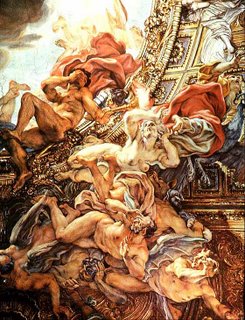The Cross of Christ Unites. . . Those Who Suffer for Justice
I consider that the sufferings of this present time are not worth comparing with the glory that is to be revealed to us. ROMANS 8:18
But Abraham said, “Son, remember that you in your lifetime received your good things, and Lazarus in like manner evil things; but now he is comforted here, and you are in anguish.” LUKE 16:25 Jesus tells a story about two dead men: one affluent, the other a beggar. After living a life of luxury, the rich man finds himself suffering in acute pain; he asks Abraham to send Lazarus (the poor beggar) to get him a drink. Even in the afterlife, the rich man thinks that Lazarus should be waiting on him! Abraham points out the barrier that prevented Lazarus from doing the rich man’s bidding in the afterlife. Of course, no such barrier exists among the living. The justice of Lazarus’s reward in the afterlife also points to the fact that it is no one’s lot to be a beggar in this life; the surplus of some, as Pope John Paul II has often preached, belongs to those in need. While he was alive, the rich man had it within his means to relieve the suffering of Lazarus, but he did nothing. In the mind of the rich man, Lazarus was exactly what God wanted him to be—a beggar. In the next life, the tables were turned: Lazarus was rewarded, and the rich man suffered.
It is a simple message, one that we have heard many times. It also has a touch of irony: In the story, the rich man begs Abraham to send Lazarus back from the dead to warn the rich man’s brothers. Abraham predicts that they still wouldn’t believe. Notice the reaction of the crowd when Jesus raises Lazarus from the dead: “So the chief priests planned to put Lazarus also to death, because on account of him many of the Jews were going away and believing in Jesus,” (John 12:10–11). Jesus sent his disciples out to heal, to liberate, and to invite others into the kingdom of God. As a follower of Christ, what am I doing for those Jesus sends to me?
--an excerpt from
The Power of the Cross by Michael Dubruiel is a book well-suited to daily reading during Lent.




